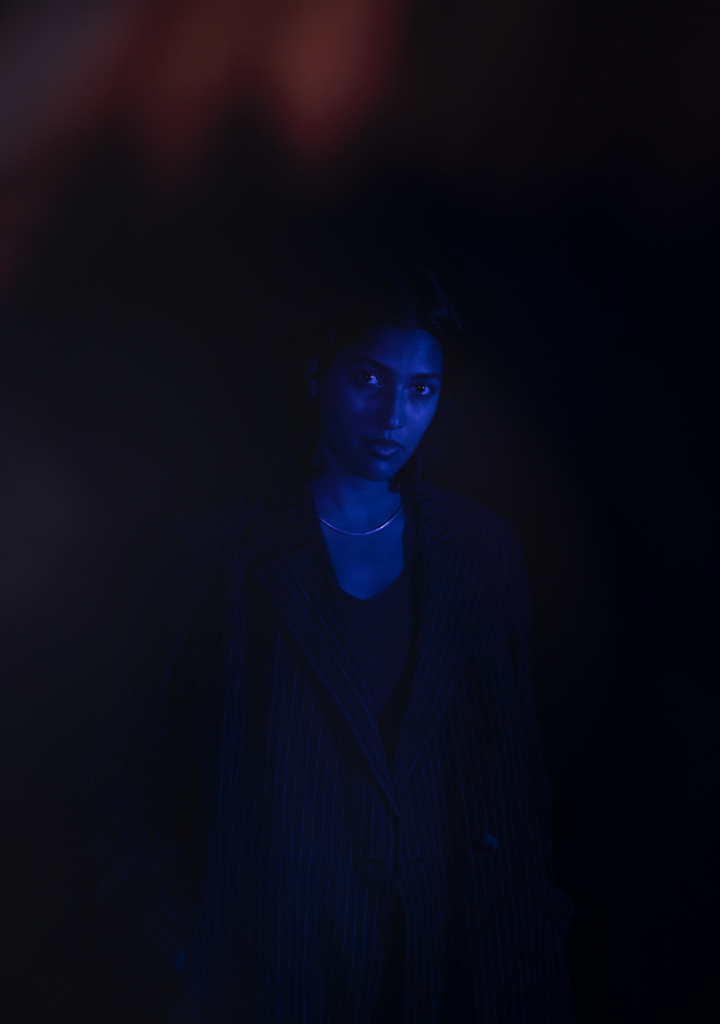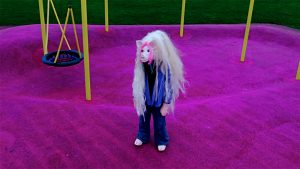Yantan Ministry released EP Radio Unnameable via Yegorka on October 23, with mix ‘Tail On’ premiering today on AQNB. The record debut follows their 4-year discography of edits, mixfiles, and compilation tracks, with a recent appearance on Kelman Duran’s NTS Radio show and score of Jennifer Boyd’s ‘A Theory for the Strange-Girl: Raw Red Text’ for Country Music. Over email, the artist discusses their experience in Berlin’s club scene and an understanding of music that involves shared introspection, community, and sometimes making a mess of friends’ work.
**I was told by our mutual friend to make this a personal interview. What parts of your work are driven by those around you? How about Berlin or other places?
Yantan Ministry: I find it hard to extricate the people around me from any process in clear terms. I’ve learned very valuable lessons relating to music in a concrete sense, but often influence and implication happen on a more intravenous, emotional or intense level than that. And then everything mixes and gets reinforced. If I had to pin one of many things down, I’d say the part of my work which is a sense of responsibility towards my surroundings and friends/peers, the ideal outcome in this kind of engagement, I think. I moved to Berlin to be close to some people for whom I had a sense– a flutter and a notion of growth– about, rather than expecting this place to give me something.
And I’m glad that that feeling has matured and deepened. I’m also of course influenced by a sharing of thoughts on music, from sound to creative process and more. Other than that, I pass a few months every year in Sri Lanka, the constant shifting itself is definitely something that informs me.
**You introduce and obscure folklore across Radio Unnameable, in the appropriation of traditional instrumentation and calling upon your work as a club DJ. Can you go into this? How are these intertwined?
YM: Traditional instrumentation is simply something that pleases me. I prefer to process and squeeze, sculpt and hack at samples rather than rely solely on presets. When I do use them, I like to find the places in which processed recordings and electronically generated material meet, rather than juxtapose them for their differences. My use of traditional instrumentation isn’t tied to a belief system around them, I mildly resent the implication that live instruments carry an inescapable aura of reality and its consequent weights and value. I like generating my own samples and recordings as a way to immerse myself in the relationship I have to them; from that instant onwards, there is a constant process of listening and reacting, and choice making based on conscious and unconscious notions. I enjoy that murky, moving space and find it generative and vast.
As far as the club DJ part is concerned…. same. Being part of an experimental underground scene to me had always been about listening and reactivity, about introducing notions and either gently and/or grotesquely slamming things together to see what would happen, while keeping a finger on more than just your own pulse. I’d say my attitude remains pretty consistent across the board.

**You’ve focused on edits and remixes across your discography. Is there any reason for that? How has the format informed your approach to music?
YM: I’ve learned a lot of what I feel towards music making by screwing around with edits. I think it relates to the circular listening practice again. “Listening” as in this manyfold event – I might like eight bars off a track because the melody is beautiful. Or perhaps because it sparks an emotional connection which is unrelated to the mechanics of the melody itself. Maybe it’s just one of those moments in a track you need to scroll back on again and again because for some reason it’s hooked onto you. Or perhaps there’s a joke in the title. There could be plenty of reasons but that thing’s got tension.
And I like observing that tension change and travel and transform when paired or worked on. I love seeing something carry on someplace else, and investigating its boundaries, and I love the occasional humour. Sometimes something crosses just right and the emergence feels both surprising and ordained. Other than that I’d say another reason I focused on edits is that I enjoy touching the material of people I might (even if loosely) share space with.
A lot of edits I’ve made are borderline disrespectful spins on friends’ music. I like to rearrange and respond, and I like to immerse myself in others’ music. The same goes for remixes, the foundation I stand on is mainly the other artists’ actions. Perhaps this relates to that notion of responsibility I mentioned before, influence is something I pull within and without of myself: in-fluence. I do this out of instinct, but in concrete terms it’s also a counterpoint and a conscious response to the hack-and-take method, which sources a thing from its universe regardless of a thing’s -ness.
**If it had a location, where would the Radio Unnameable be?
YM: Nowhere, it’s slinking around sideways. Although while working on it, I had two spaces in my mind which popped up often: one was the spot of vision just at the corner of my eye, the other is a stream of radio signals sweeping high up through the air on a clear night. **
Yantan Ministry’s Radio Unnameable was released via Yegorka on October 23.














